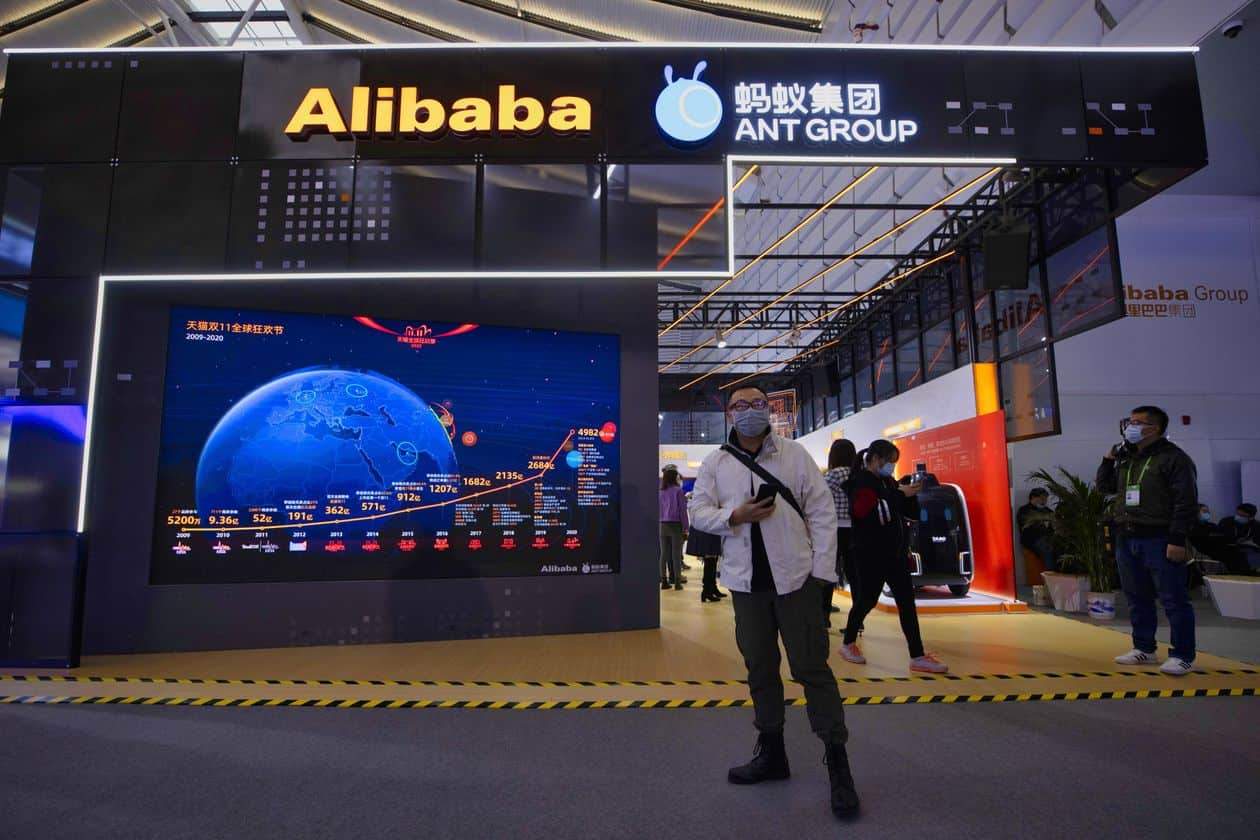Congress Sets Stage for Exiling Chinese Stocks From U.S. Over Audit Dispute

The House unanimously approved legislation on Wednesday that threatens a trading ban of shares of Chinese companies such as Alibaba Group Holding Ltd. BABA +1.91% over concerns that their audits aren’t sufficiently regulated.
The bipartisan measure passed the Senate in May and could quickly become law with President Trump’s signature. The fight over China’s resistance to allowing overseas inspections of its companies’ audits has lasted for years but reached a fever pitch during the Trump administration.
Under the measure, Chinese companies and their auditors would have three years to comply with the inspections before a trading prohibition could take effect. If a breakthrough looked unlikely, the companies would probably respond ahead of a ban by either going private or moving their listing to a non-U.S. exchange.
U.S. regulators are working on another proposal that could allow Chinese auditors to comply with the inspection requirement without violating their home country’s laws, which limit the sharing of information. The Securities and Exchange Commission could issue such a proposal this month, although it wouldn’t immediately take effect.
Chinese firms have raised money from U.S. shareholders for years, but their auditors violate a fundamental investor protection: China typically won’t allow American regulators to check their work. Chinese companies including Luckin Coffee Inc. have imploded in accounting scandals over the past decade, raising awareness of the audit-inspection gap.
“Without this bill, the Chinese have been just stonewalling us, and we certainly shouldn’t make it easier for a Chinese company to get American capital than an American company,” Rep. Brad Sherman (D., Calif.), a certified public accountant who sponsored similar legislation this year, said. The Senate legislation was sponsored by Sens. John Kennedy (R., La.) and Chris Van Hollen (D., Md.).
Mr. Trump is likely to sign the legislation, Mr. Sherman added. He said on the House floor Wednesday that hopes China would now agree to a regime to conduct inspections.
House lawmakers included a statement that clarifies the bill’s intent. The instructions don’t have the force of law but direct the SEC to implement the measure without harming American companies that do business in China and thus use Chinese accounting firms for part of their annual audit. Some critics of the legislation have worried the bill could wind up hurting U.S. companies operating in China.
Kicking Chinese companies off U.S. exchanges would lead to huge movements of capital and end an era in which fast-growing Chinese firms flocked to New York to go public. More than 250 companies based in China or Hong Kong are listed on U.S. exchanges, with a combined market capitalization of more than $2 trillion, according to S&P Global Market Intelligence.
The legislation could give Washington more leverage in negotiating with Beijing to resolve the standoff over audit inspections, and may ultimately hasten a deal to allow Chinese firms to maintain their U.S. listings, said Marc Iyeki, the former head of Asia-Pacific listings at the New York Stock Exchange.
“Three years is a lot of time,” Mr. Iyeki said. “You have two interlocked economies and financial markets, and it would be difficult to untangle them completely. There is a good benefit to both sides to have a resolution that both sides can live with.”
In the U.S., audit supervision is handled by a special watchdog, the Public Company Accounting Oversight Board, which was set up after the accounting scandals that took down Enron Corp. and others nearly 20 years ago. The SEC oversees the PCAOB and appoints its board members.
If the bill eventually results in an exodus of Chinese companies, it would deal a blow to the NYSE and Nasdaq, which collect listing fees from such firms and benefit from their trading volumes. Executives from both exchanges have criticized the legislation, saying there are less drastic ways to resolve the dispute.
“The NYSE has consistently advocated for investor protections balanced with investor choice, and we are hopeful this legislation’s time horizon will allow for a resolution that supports both of these fundamental needs,” said a spokesperson for the NYSE, which is owned by Intercontinental Exchange Inc. ICE +0.02%
Some larger Chinese companies listed on the NYSE and Nasdaq have recently floated shares in Hong Kong, giving them a place to go if they are kicked off U.S. exchanges. Alibaba last year established a secondary listing on the Hong Kong stock exchange, and its rival, JD.com Inc., JD +1.45% and online-gaming group NetEase Inc. NTES -0.06% followed suit this year.
Other Chinese companies could respond to the threat of a U.S. trading ban by going private. That concerns some investors who worry that management teams could take their companies private at a lower share price, benefiting insiders who would buy out public shareholders. In June, Aberdeen Standard Investments warned that a wave of going-private transactions by Chinese companies could result in bad deals for investors.
“We believe that these transactions may be at prices that do not reflect the full value of the companies involved, with the transactions representing a transfer of value from minority investors to acquirers,” the U.K. asset manager said in a letter to the SEC.
Photo: The Alibaba booth at a Wuzhen, China, conference on Nov. 23. Alibaba is one of the companies that could be affected by the House-passed legislation. - ALEX PLAVEVSKI/EPA/SHUTTERSTOCK
Link: https://www.wsj.com/articles/congress-sets-stage-for-exiling-chinese-stocks-from-u-s-over-audit-dispute-11606946071




